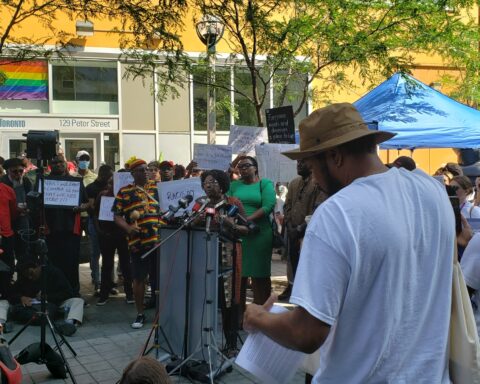Montreal − A new study published by the Institute for Research on Public Policy challenges the perception that the Somali Canadian community has failed to integrate into the wider society. Instead, its author finds that many young Somali Canadians have a strong attachment to Canada that is often accompanied by identification with Islam and with Somalia.
In her study “I Am Canadian: Challenging Stereotypes about Young Somali Canadians,” Rima Berns-McGown also reports that her in-depth interviews with young Somali Canadians demonstrated no widespread or significant support for the al-Shabaab movement in southern Somalia or any other organization that might threaten the public safety of Canadians.
Berns-McGown, who teaches diaspora studies at the University of Toronto, highlights some of the significant roadblocks young Somali Canadians often encounter, including the trauma that they and/or their families experienced in Somalia before leaving, racism in school and on the part of the police, and negative media coverage.
According to Berns-McGown, “social cohesion would be much better served if we addressed the specific challenges Somali Canadians continue to face, rather than stigmatizing the community and contributing to the criminalization of its youth.”
To that end, the author offers a number of proposals for school boards, law enforcement agencies, federal and provincial governments, and the media, such as targeted support for Somali Canadian youth and ways to address institutional barriers and stereotyping. “These measures could enhance Somali Canadians’ inclusion in the wider society and foster a balanced approach to public safety issues,” concludes Berns-McGown.
This study challenges the perceptions that the Somali Canadian community has failed to an unusual degree to integrate into the wider society. That this is the fault of the community itself and that this supposed failure represents a threat to Canadian security because of suggestions that some Somali Canadian youth have been lured to the radical extremism of the al-Qaeda-linked al-Shabaab movement in southern Somalia, and because some have become involved in drug trafficking and street violence.
Drawing on her previous research and some 40 in-depth interviews with young Somali Canadians, Berns-McGown finds that most of these youth self-identify as Canadian and want very much to be a part of this country, which they see as their home. They also, and not in contradiction, feel strongly Muslim and Somali. Extensive quotations from the interviews provide insights about these multiple identities. To the extent that integration involves the identification of newcomers with their adopted home, most of these young Somalis appear to be integrating well.
But integration is a two-way street: it entails the willingness of new Canadians to embrace their new home and — equally significantly — the willingness of the wider society to lower the barriers to their becoming active and productive members of their adopted home. And in that regard, many young Somali Canadians encounter significant roadblocks that are not conducive to integration or social cohesion. These include systematic, institutional racism on the part of schools, police and intelligence agencies, and the media. In light of the significant challenges the Somali Canadian community has faced, the author’s assessment is that its achievements have been quite extraordinary.
Berns-McGown found no widespread or significant support for al-Shabaab or any other organization that threatens the public safety of Canadians, and she maintains that characterizations of the community as disengaged and a security threat are unwarranted and deeply problematic.
[“I Am Canadian: Challenging Stereotypes about Young Somali Canadians” by Rima Berns-McGown can be viewed at the Institute’s Web site (www.irpp.org)]




